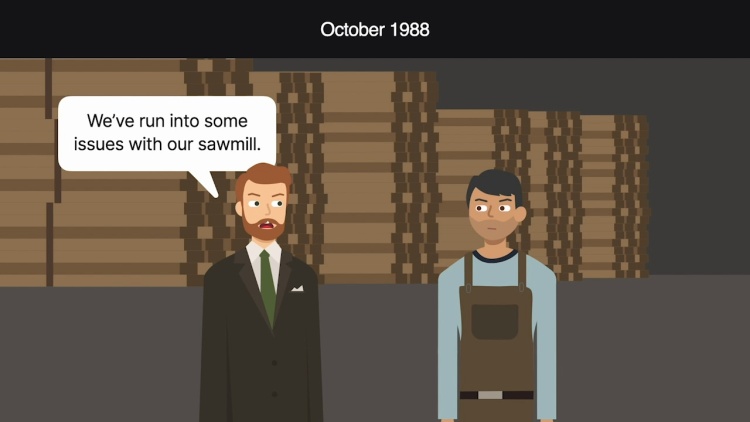Sprague v. Sumitomo Forestry Company
Washington Supreme Court
104 Wash.2d 751 (1985)

- Written by Josh Lee, JD
Facts
Clyde Sprague (plaintiff), a logger, entered into a contract to sell timber to Sumitomo Forestry Company, Ltd. (Sumitomo) (defendant). Sprague commenced performance, but Sumitomo then canceled the contract. Sprague sued Sumitomo for breach of contract and tried to mitigate his damages by reselling the timber within two years. However, Sprague did not notify Sumitomo of his intention to resell. Sprague sought to recover the difference between the contract price and the resale price, as well as incidental damages. At trial, there was testimony that the market price at the time of resale was the same as the market price at the time of contract. The jury found for Sprague and awarded him the difference between the contract price and the resale price, as well as incidental damages that included $171,200 for the loss of 11 weeks of logging time that caused a delay in Sprague’s performance of his contract with Mt. Baker Plywood, a third-party buyer. Sumitomo appealed, arguing that (1) the damages for lost logging time were precluded because they were consequential rather than incidental, and (2) Sprague was not entitled to recover the difference between contract price and resale price because he had failed to notify Sumitomo of his intention to resell.
Rule of Law
Issue
Holding and Reasoning (Dore, J.)
What to do next…
Here's why 907,000 law students have relied on our case briefs:
- Written by law professors and practitioners, not other law students. 47,100 briefs, keyed to 996 casebooks. Top-notch customer support.
- The right amount of information, includes the facts, issues, rule of law, holding and reasoning, and any concurrences and dissents.
- Access in your classes, works on your mobile and tablet. Massive library of related video lessons and high quality multiple-choice questions.
- Easy to use, uniform format for every case brief. Written in plain English, not in legalese. Our briefs summarize and simplify; they don’t just repeat the court’s language.





